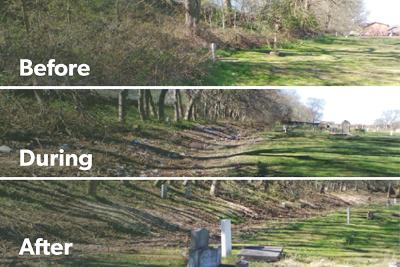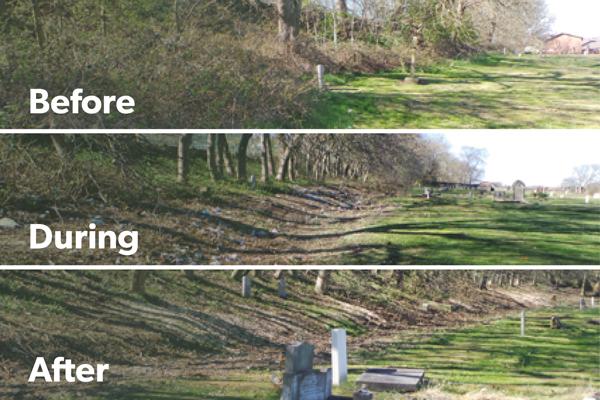Gateshead Environmental improvements planned

Gateshead Council have committed £750,000 over the next three years to try to tackle more fly-tipping, litter and graffiti across the borough.
The Environmental Investment Scheme, which aims to tackle eyesores in dozens of local communities, will see a new team of workers recruited to tackle particular issues. The team is expected to target one area each week with more than 25 different areas having already been identified for action. More are expected to be added as the scheme progresses.
Philip Hindmarsh, Gateshead Council's service director for Street Scene Services, said: "I'm really pleased that we've been able to find the funding for this important programme of work. We understand how deeply annoying and upsetting littering and fly tipping can be and sadly it is a small number of people who spoil our environment for everyone.
"We know there's a large number of areas which residents have complained about to their local councillors, areas which we just haven't had the resources to tackle properly, however we hope this team of dedicated workers can help bring back pride into some of Gateshead's most misused areas. We know there is a big task ahead and it will take time but the team are up for the challenge and we hope residents will start to notice a difference in the months and years ahead."
The Environmental Investment Scheme will create employment for 7 local people, with 3 horticultural apprenticeships being offered to ensure that team members have a lasting qualification when the three-year scheme ends.
Teams will be involved with wide range of improvements such as vegetation removal, tree maintenance, weed control, the deep cleansing of paths and decorative surfaces, the removal of accumulated rubbish and fly-tipping, graffiti and flyposting removal, and improvements to litter bins and grit bins.
Report fly-tipping and graffiti
The scheme will also be working closely with local schools, voluntary organisations and other partners to ensure that the improvements carried out can be sustained into the future.

Gateshead Council have committed £750,000 over the next three years to try to tackle more fly-tipping, litter and graffiti across the borough.
The Environmental Investment Scheme, which aims to tackle eyesores in dozens of local communities, will see a new team of workers recruited to tackle particular issues. The team is expected to target one area each week with more than 25 different areas having already been identified for action. More are expected to be added as the scheme progresses.
Philip Hindmarsh, Gateshead Council's service director for Street Scene Services, said: "I'm really pleased that we've been able to find the funding for this important programme of work. We understand how deeply annoying and upsetting littering and fly tipping can be and sadly it is a small number of people who spoil our environment for everyone.
"We know there's a large number of areas which residents have complained about to their local councillors, areas which we just haven't had the resources to tackle properly, however we hope this team of dedicated workers can help bring back pride into some of Gateshead's most misused areas. We know there is a big task ahead and it will take time but the team are up for the challenge and we hope residents will start to notice a difference in the months and years ahead."
The Environmental Investment Scheme will create employment for 7 local people, with 3 horticultural apprenticeships being offered to ensure that team members have a lasting qualification when the three-year scheme ends.
Teams will be involved with wide range of improvements such as vegetation removal, tree maintenance, weed control, the deep cleansing of paths and decorative surfaces, the removal of accumulated rubbish and fly-tipping, graffiti and flyposting removal, and improvements to litter bins and grit bins.
Report fly-tipping and graffiti
The scheme will also be working closely with local schools, voluntary organisations and other partners to ensure that the improvements carried out can be sustained into the future.
